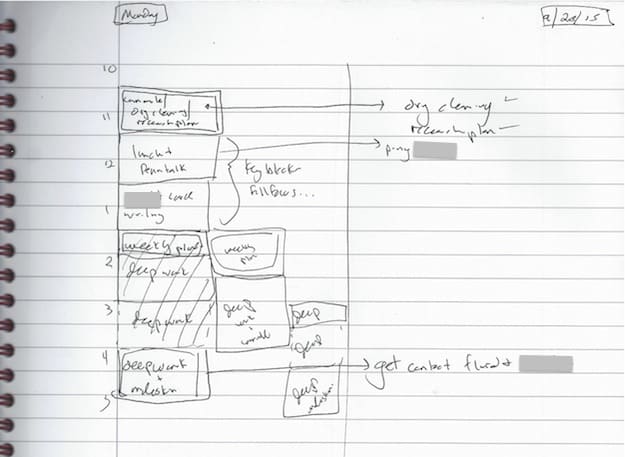How My Boss Gets — Work — DONE

Craig Ballantyne is my boss and the rumors you hear about him are true.
In a recent podcast Craig did with Sean Croxton (best podcast yet, IMO) Croxton says this:
“Whenever your name would come up in conversation, it immediately went to, ‘Craig is a BEAST. That guy gets — work — DONE. I don’t even know how he does it…’”
I’ve worked for Craig for almost three years now and I’ve heard different people all say this.
Whenever someone asks me ‘What’s Craig’s secret?’ I usually say…
He plans.
He has rules.
He rarely diverges from his plans and rules.
Annoying, right? You wanted something more.
I read an article this morning called, “Don’t Overplan Your Career.” The antithesis of what Craig Ballantyne and ETR are all about.
The article is getting a lot of love on Medium with most of the comments from people who agree with the author’s message:
“Life makes your long-term roadmap 90% worthless. I’ve seen this time and time again amongst friends and colleagues.”
The author goes on to give examples of how he’s seen his peers make total 180’s in their careers, completely diverging from “the plan.” Therefore, trying to plan your career 5-10 years in advance is a mistake.
The author also acknowledges that his stance is contrarian.
It’s contrarian because most people know this is bad advice.
Careers are like icebergs.
What you see on the surface (people’s career moves) are only a small percent of what’s really going on below the surface (mindset, motivation, sacrifice, etc.).
And planning plays a big role in affecting what’s below the surface. Without planning, these life-changing career moves you see people make probably wouldn’t happen.
One of the perks of working for an influencer like Craig is I get to see who Craig follows and what blogs he reads.
One blog Craig likes is Study Hacks by Cal Newport. Cal Newport is a big believer in planning his days, weeks, and career.
But Cal doesn’t plan because he expects to follow those plans to a T, he plans for a different reason. The best coaches tell their players to trust the process — and the process is why Cal plans.
Per Cal’s recommendation, here’s how to plan your day:

I like the simplicity of this planning method (outlined here). I plan my days like this now, and I’ve noticed big improvements in my life.
Here’s how it works: On the margins of your page list the hours in your workday (i.e. 9 a.m., 10 a.m., etc.), then simply block off time for specific tasks. If something comes up, you adjust (those are the arrows). That’s it.
No apps or special notebooks required. Just a lined piece of paper and a pen.
When most people first see this approach to planning they think it’s ridiculous. What happens when plans change and life gets in the way? What’s the point of planning if you don’t stick to it? Cal addresses these objections here:
There is, however, a pitfall with this productivity strategy that I stumble into time and again: it’s easy to start associating “success” for your day with accomplishing your plan exactly as first envisioned, and to label any other outcome as a “failure” — a belief that triggers near constant frustration for most jobs.
The reality of daily scale productivity is that plans are not meant to be preserved. They’re instead meant as a device for ensuring that you tackle your day with deliberation.
I like hearing people call themselves “X-year-overnight successes.”
These are the people who understand that “Success is simple once you realize how hard it is.”
The hard part about planning is sticking to the process. What we’ve found at ETR that helps us stick to our processes is setting rules.
“More structure = more freedom.”
Craig explains why this is true and how to start creating rules for your life in his new book The Perfect Day Formula.
If you haven’t read it yet, do yourself and your career a favor, and grab a copy today.
Nick Papple
Managing Editor
The Daily Brief